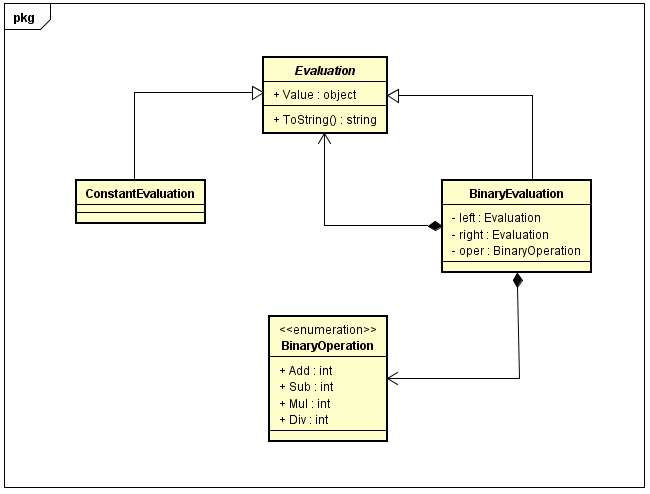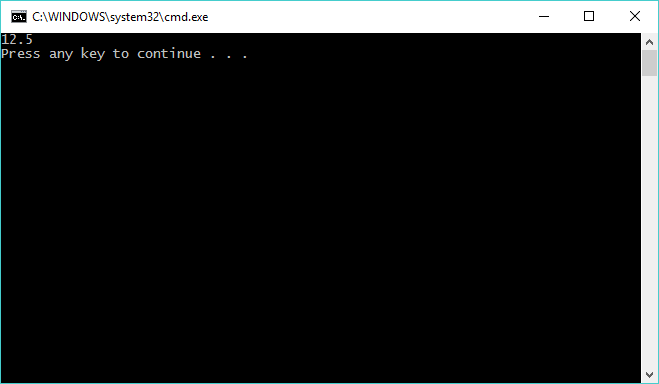A modified version of the Irony project (https://irony.codeplex.com) with .NET Core support.
Irony is a .NET Language Implementation Kit written originally by Roman Ivantsov, you should be able to find his blog related to Irony via http://irony-roman.blogspot.com/. He also developed an ORM framework, VITA, which can be found here.
Based on the fact that the project on its official site hasn't been updated for a long time (last commit was on Dec 13th 2013) and cannot support .NET Core, I just made a copy of the project and made some modifications in order to support .NET Core. I still kept the MIT license and made the project to be licensed under Roman's name.
- Fixed the compile issues found during .NET Core migration
- Changed
StringComparer.InvariantCulture(IgnoreCase)toStringComparer.CurrentCulture(IgnoreCase) - Changed
char.GetUnicodeCategory()toCharUnicodeInfo.GetUnicodeCategory(current) - Temporary removed
ParseTreeExtensionsimplementation - Migrated the unit test project to xUnit
- Removed the original
Test,Sample,GrammarExplorerprojects from the Visual Studio solution. And the GrammarExplorer is supposed to be provided in another repo
- Changed
The Irony and Irony.Interpreter packages have been published to NuGet, with the package id Irony.NetCore and Irony.Interpreter.NetCore, in distinguishing from the original Irony and Irony.Interpreter packages published by Roman.
This repo contains a full example of an arithmetic expression evaluator, which accepts an arithmetic expression as a string and evaluates and calculates the result. You can find the source code under Irony.SampleApp folder. The expression grammar can be represented by the following C# class:
using Irony.Interpreter.Ast;
using Irony.Parsing;
using System;
namespace Irony.SampleApp
{
/// <summary>
/// Represents the grammar of a custom expression.
/// </summary>
/// <seealso cref="Irony.Parsing.Grammar" />
[Language("Expression Grammar", "1.0", "abc")]
public class ExpressionGrammar : Grammar
{
/// <summary>
/// Initializes a new instance of the <see cref="ExpressionGrammar"/> class.
/// </summary>
public ExpressionGrammar() : base(false)
{
var number = new NumberLiteral("Number");
number.DefaultIntTypes = new TypeCode[] { TypeCode.Int16, TypeCode.Int32, TypeCode.Int64 };
number.DefaultFloatType = TypeCode.Single;
var identifier = new IdentifierTerminal("Identifier");
var comma = ToTerm(",");
var BinOp = new NonTerminal("BinaryOperator", "operator");
var ParExpr = new NonTerminal("ParenthesisExpression");
var BinExpr = new NonTerminal("BinaryExpression", typeof(BinaryOperationNode));
var Expr = new NonTerminal("Expression");
var Term = new NonTerminal("Term");
var Program = new NonTerminal("Program", typeof(StatementListNode));
Expr.Rule = Term | ParExpr | BinExpr;
Term.Rule = number | identifier;
ParExpr.Rule = "(" + Expr + ")";
BinExpr.Rule = Expr + BinOp + Expr;
BinOp.Rule = ToTerm("+") | "-" | "*" | "/";
RegisterOperators(10, "+", "-");
RegisterOperators(20, "*", "/");
MarkPunctuation("(", ")");
RegisterBracePair("(", ")");
MarkTransient(Expr, Term, BinOp, ParExpr);
this.Root = Expr;
}
}
}The following class diagram illustrates the object model that can represent an arithmetic expression, the classes shown in this diagram can be found under Irony.SampleApp.Evaluations namespace.
The Evaluator class under Irony.SampleApp.Evaluations namespace is responsible for creating the parser based on the above expression grammar definition and parse the input string and finally comes out the evaluated value.
using Irony.Parsing;
using System;
using System.Text;
namespace Irony.SampleApp.Evaluations
{
internal sealed class Evaluator
{
public Evaluation Evaluate(string input)
{
var language = new LanguageData(new ExpressionGrammar());
var parser = new Parser(language);
var syntaxTree = parser.Parse(input);
if (syntaxTree.HasErrors())
{
throw new InvalidOperationException(BuildParsingErrorMessage(syntaxTree.ParserMessages));
}
return PerformEvaluate(syntaxTree.Root);
}
private Evaluation PerformEvaluate(ParseTreeNode node)
{
switch (node.Term.Name)
{
case "BinaryExpression":
var leftNode = node.ChildNodes[0];
var opNode = node.ChildNodes[1];
var rightNode = node.ChildNodes[2];
Evaluation left = PerformEvaluate(leftNode);
Evaluation right = PerformEvaluate(rightNode);
BinaryOperation op = BinaryOperation.Add;
switch (opNode.Term.Name)
{
case "+":
op = BinaryOperation.Add;
break;
case "-":
op = BinaryOperation.Sub;
break;
case "*":
op = BinaryOperation.Mul;
break;
case "/":
op = BinaryOperation.Div;
break;
}
return new BinaryEvaluation(left, right, op);
case "Number":
var value = Convert.ToSingle(node.Token.Text);
return new ConstantEvaluation(value);
}
throw new InvalidOperationException($"Unrecognizable term {node.Term.Name}.");
}
private static string BuildParsingErrorMessage(LogMessageList messages)
{
var sb = new StringBuilder();
sb.AppendLine("Parsing failed with the following errors:");
messages.ForEach(msg => sb.AppendLine($"\t{msg.Message}"));
return sb.ToString();
}
}
}And the Program.Main method simply creates the evaluator and output the evaluated value:
using Irony.SampleApp.Evaluations;
using System;
namespace Irony.SampleApp
{
public class Program
{
public static void Main(string[] args)
{
var evaluator = new Evaluator();
var evaluation = evaluator.Evaluate("2.5+(3-1)*5");
Console.WriteLine(evaluation.Value);
}
}
}Program output:

